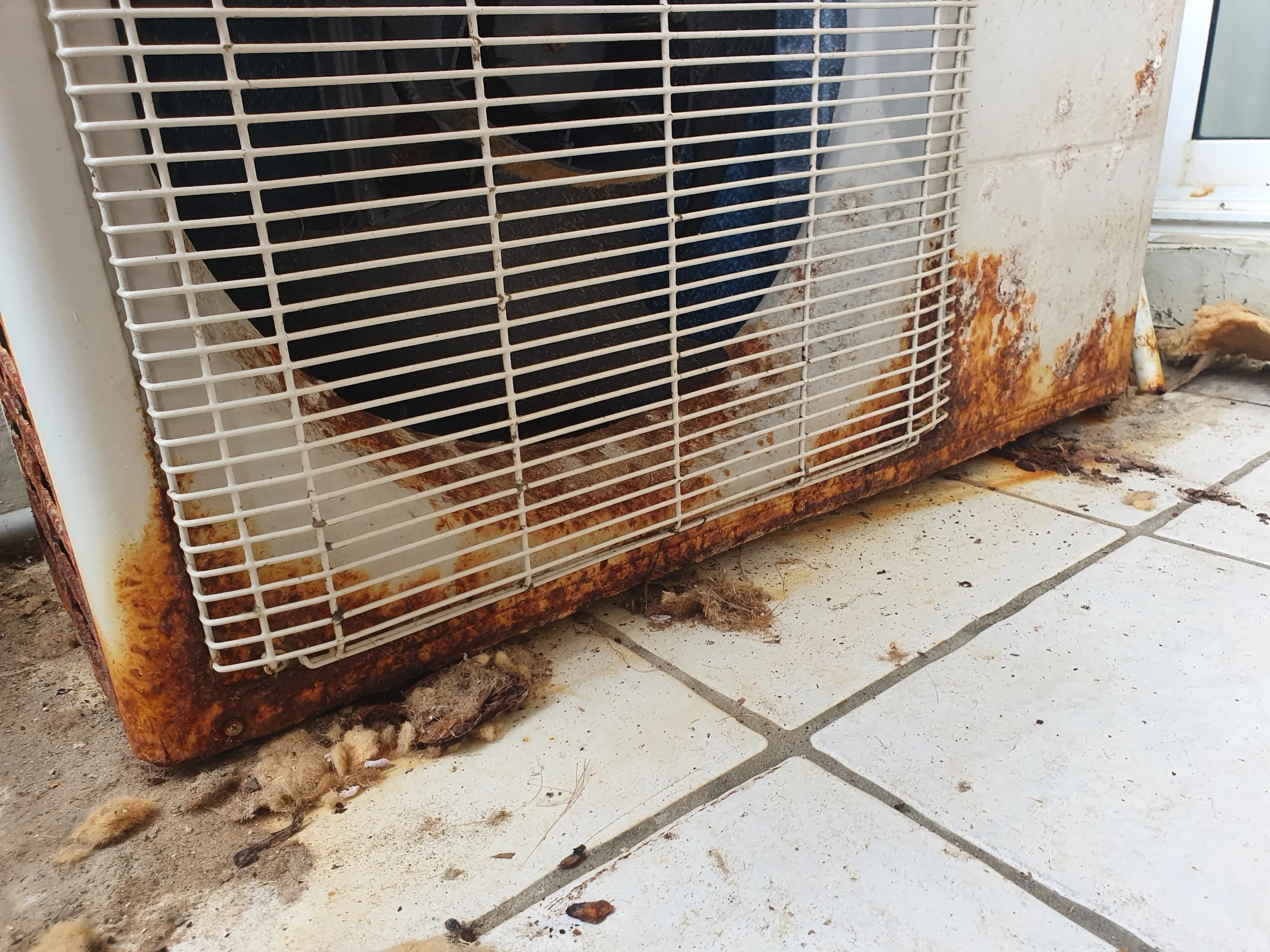Corrosion And Your Air Conditioner
Corrosion damage to an air conditioner condenser unit on the Gold Coast
Corrosion is a major enemy to most metal appliances. With air conditioners, corrosion along the evaporator or condenser coils is responsible for 40% of system failures.
The outdoor unit of an AC is exposed to the elements, including humidity and moisture - which the Gold Coast has in spades. This can begin the disintegration of the metal coils. The air conditioner cabinet protects most of the parts from direct exposure, but it’s not a perfect stronghold. Moisture can get in through the grill of the unit.
What Does Corrosion Do to An Air Conditioner?
The primary risk associated with corrosion, in regard to air conditioners, is the loss of refrigerant. Corrosion gradually erodes the copper material of the refrigerant coils, permitting the high-pressure refrigerant to leak out. Since an air conditioner is designed to operate with a specific quantity of refrigerant, known as the unit’s charge, any reduction in refrigerant levels places the entire unit in jeopardy.
This results in a loss of cooling capacity, but that's just the beginning of the problems. The indoor coil will freeze over, and eventually, the compressor will overheat and fail. When the compressor malfunctions, it's typically more cost-effective to replace the entire air conditioner rather than just replacing the compressor.
Corrosion also leads to a decrease in the coils' efficiency because it forms an insulating layer that hinders heat exchange. As a consequence, operating the air conditioner becomes more expensive, often serving as an early indication of corrosion development.
Corroded Air Conditioner
When corrosion sets in on the coils of an air conditioner, the best solution is to replace the unit.
If you want to speak to a professional, give us a call. We’ve been successfully servicing the Gold Coast for over 25 years and all our technicians have full ‘Refrigeration and Air Conditioning’ trade qualifications.

